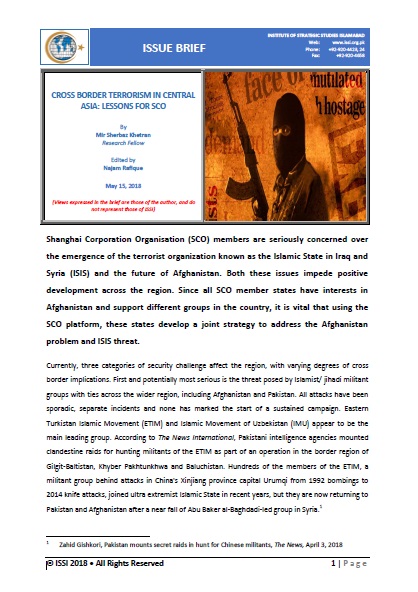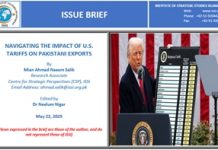Shanghai Corporation Organisation (SCO) members are seriously concerned over the emergence of the terrorist organization known as the Islamic State in Iraq and Syria (ISIS) and the future of Afghanistan. Both these issues impede positive development across the region. Since all SCO member states have interests in Afghanistan and support different groups in the country, it is vital that using the SCO platform, these states develop a joint strategy to address the Afghanistan problem and ISIS threat.
Currently, three categories of security challenge affect the region, with varying degrees of cross border implications. First and potentially most serious is the threat posed by Islamist/ jihadi militant groups with ties across the wider region, including Afghanistan and Pakistan. All attacks have been sporadic, separate incidents and none has marked the start of a sustained campaign. Eastern Turkistan Islamic Movement (ETIM) and Islamic Movement of Uzbekistan (IMU) appear to be the main leading group. According to The News International, Pakistani intelligence agencies mounted clandestine raids for hunting militants of the ETIM as part of an operation in the border region of Gilgit-Baltistan, Khyber Pakhtunkhwa and Baluchistan. Hundreds of the members of the ETIM, a militant group behind attacks in China’s Xinjiang province capital Urumqi from 1992 bombings to 2014 knife attacks, joined ultra extremist Islamic State in recent years, but they are now returning to Pakistan and Afghanistan after a near fall of Abu Baker al-Baghdadi-led group in Syria.[1]















